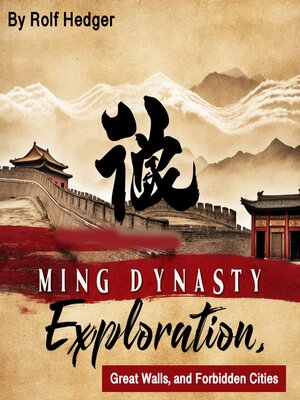
Sign up to save your library
With an OverDrive account, you can save your favorite libraries for at-a-glance information about availability. Find out more about OverDrive accounts.
Find this title in Libby, the library reading app by OverDrive.



Search for a digital library with this title
Title found at these libraries:
| Library Name | Distance |
|---|---|
| Loading... |
The Ming Dynasty emerged from the ashes of the Yuan Dynasty, a Mongol-led empire that had ruled China for nearly a century. By the late 14th century, the Yuan government had become weak and corrupt, plagued by heavy taxation, famines, and widespread unrest. The Chinese population, weary of foreign rule, began to rise in rebellion. Among the many insurgent leaders, one man would rise to power and change the course of Chinese history—Zhu Yuanzhang.
Born into a poor peasant family, Zhu Yuanzhang experienced hardship early in life. Orphaned as a child, he spent years in a Buddhist monastery before joining the Red Turban Rebellion, a movement dedicated to overthrowing the Yuan. His military prowess and strategic mind quickly elevated him through the ranks. As he consolidated power, he systematically eliminated rival factions, eventually establishing himself as the dominant leader of the rebellion. In 1368, Zhu marched his forces into Beijing, forcing the last Yuan emperor to flee northward. Declaring the end of Mongol rule, he proclaimed himself emperor and founded the Ming Dynasty, choosing the name "Ming," meaning "brilliant" or "bright," to symbolize a new era of Chinese rule.
As the first Ming emperor, Zhu Yuanzhang, now known as the Hongwu Emperor, sought to restore Chinese traditions and repair the damage caused by Mongol rule. He reestablished Confucian principles as the foundation of government, reinstating the civil service examination system to ensure that officials were selected based on merit rather than birthright. He also implemented strict laws to reduce corruption, often resorting to harsh punishments to maintain order. His administration worked to rebuild agriculture, improve irrigation systems, and distribute land to farmers, strengthening the economy and ensuring food security.







